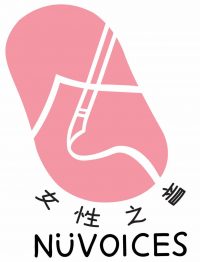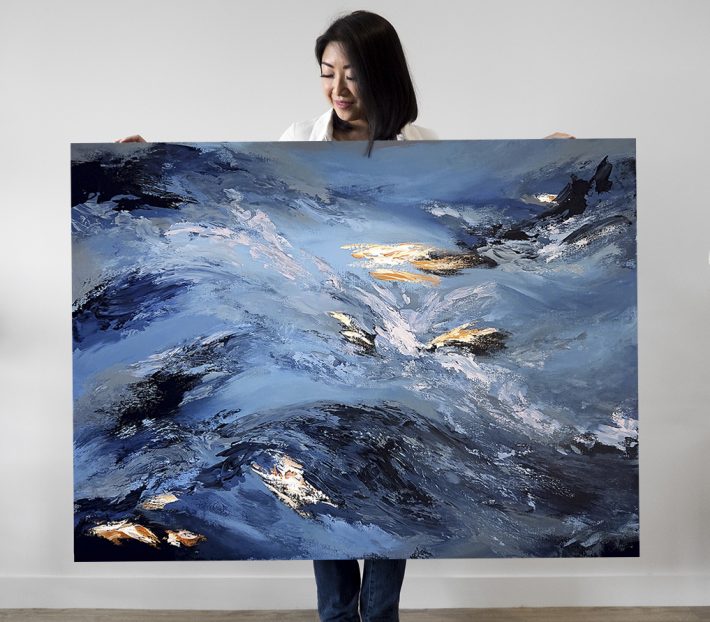BY JANE PENG
The first hint that there was a problem occurred innocently. I had just switched from a corporate career to a creative one, and I embraced every moment of being an artist. When a close friend saw one of my paintings and approached me, eager to buy it, I was caught off-guard; it wasn’t a piece that I had even planned on putting up for sale. I quoted a price that I thought was fair, and the painting quickly sold.
Afterwards, in a candid exchange with my friend, I learned that he would have in fact been happy to pay more than three times as much for the painting.
Soon after, a similar situation arose when a couple approached me to commission a large statement piece for their home. Though I had a specific price in mind for the project, I discounted the price heavily on the grounds that I was a new and unestablished artist, so I wasn’t “qualified” to charge what I truly wished.
They accepted my quote quickly and were thrilled with the resulting painting. Now imagine my surprise when I learned in a candid conversation afterwards that despite my four-figure quote for the project, they were in fact willing to pay more than twice the quote for the commission!
A string of similar encounters thereafter revealed a striking problem: I was repeatedly undervaluing my own work in relation to what people were willing to pay for it, and I bore the financial consequences of that mistake.
Correctly valuing our work is a matter that we all must confront in different ways throughout life. Whether it’s providing a quote when bidding for a project, or indicating salary expectations when interviewing for a job, this is an inevitable question for all who work. As I had learned the hard way, we could be severely shortchanging ourselves by misjudging the value of our own skills and work, resulting in long-term ramifications that are often difficult to detect.
The aforementioned incidents posed two questions: to what degree was this an undetected issue for other women of the 21st century, and how can we counteract it?
One fundamental problem is that women seem to be more self-critical than men in general. There is an expectation, often foisted upon ourselves, that our work must be perfect and faultless before it is shared; we hold ourselves to high standards, which is not a bad thing in itself, but the flip side is that we can be too self-critical. Indeed, a 2008 McKinsey report suggested that among surveyed Hewlett Packard employees, the typical male worker applied for promotions when they felt they had met 60 per cent of the required qualifications, whereas their female colleagues only applied when they felt they had met all of the required qualifications.
This confidence gap is often reinforced by social norms. Men who put themselves forward for opportunities and are open and comfortable with talking about their work are generally seen as “confident” and “capable”; women who do the same are often viewed as “pushy,” ”aggressive” or “too ambitious.”
The problem is likely aggravated within a certain cultural framework. As an ethnic Chinese, my upbringing included a mix of progressive and traditional Confucian views. The latter promotes the value of humility, but also the idea that women should observe the Three Obediences and the Four Virtues (三從四德), which states that women are expected to be obedient to their father and elder brothers when young, obedient to the husband when married, and to the sons when widowed.
While such ideology isn’t followed quite as closely in modern times, the broader notion still thrives: It is better for a woman to be seen as congenial instead of outspoken, subservient rather than assertive. Therefore, any form of a woman’s self-promotion or expression of confidence in her work would go against the grain of deeply embedded traditional thought.
While one should take pride in being a modern woman – one who is professionally and intellectually independent – it is just as important to consider how we may be influenced subconsciously by the long shadow of tradition and gender norms. Is one gender, for instance, over-encouraged to be humble and obedient in a patriarchal system, thereby unwittingly shortchanging themselves in multiple ways?
This self-limiting mindset of thinking that “I am not good enough for X,” be it a job promotion or a higher salary for their work or services, is particularly damaging in a field like the arts, where the market value of one’s work is far less objective than in, say, real estate. Without established methodologies such as a discounted cash flow analysis to price an asset, what this often leads to for women in the creative sector is self-censorship and missed opportunities.
A friend of mine who works as a curator notes that the arts world employs a large percentage of women relative to other sectors and yet, those holding a position of power and influence (art prize judges, heads of museums and art institutions, gallerists, art dealers, etc.) are overwhelmingly men.
Recent research published in the New Women in Theatre Forum Report, which compiled evidence from many arts and theater groups in the U.K., supports this observation. The report analyzed the gender makeup of a government-backed arts taskforce and found that “zero leadership positions on the Cultural Renewal Taskforce are occupied by women, with only three women on the taskforce as a whole.”
Furthermore, despite a large female representation amongst artists, the most famous contemporary names whose works fetch the highest bids at auctions are still men. How much of that is due to the actual quality of the work versus subconscious self-censorship by women who may, deep down, hold variations of the idea that one is “not good enough” and thus be less willing to promote their own work or, worse still, create fewer artworks in the first place?
These may not be easy questions to answer, but it is crucial that we consider how best to counteract this overly-critical and self-limiting mindset that seems widespread amongst women.
Perhaps the best thing we can do, at least for a start, is to be cognisant that there are gender biases that are well-hidden because they have become the social norm over time, and that some of these gender biases are aggravated within certain cultural frameworks.
We need to learn to see the full value of our own work instead of seeing only the flaws, and remember that while there is value in humility, we should be proud of our work and embrace every opportunity fully, for that is not the providence of men alone, but of men and women alike.
About the author
Originally from Hong Kong, Jane Peng is an abstract expressionist artist based in London. Her works belong in private collections around the world and have also been featured in exhibitions and auctions in several cities, including London and Shanghai. Upcoming exhibitions for 2021 include ArtExpo New York. Her portfolio of works can be found on janepeng.com

